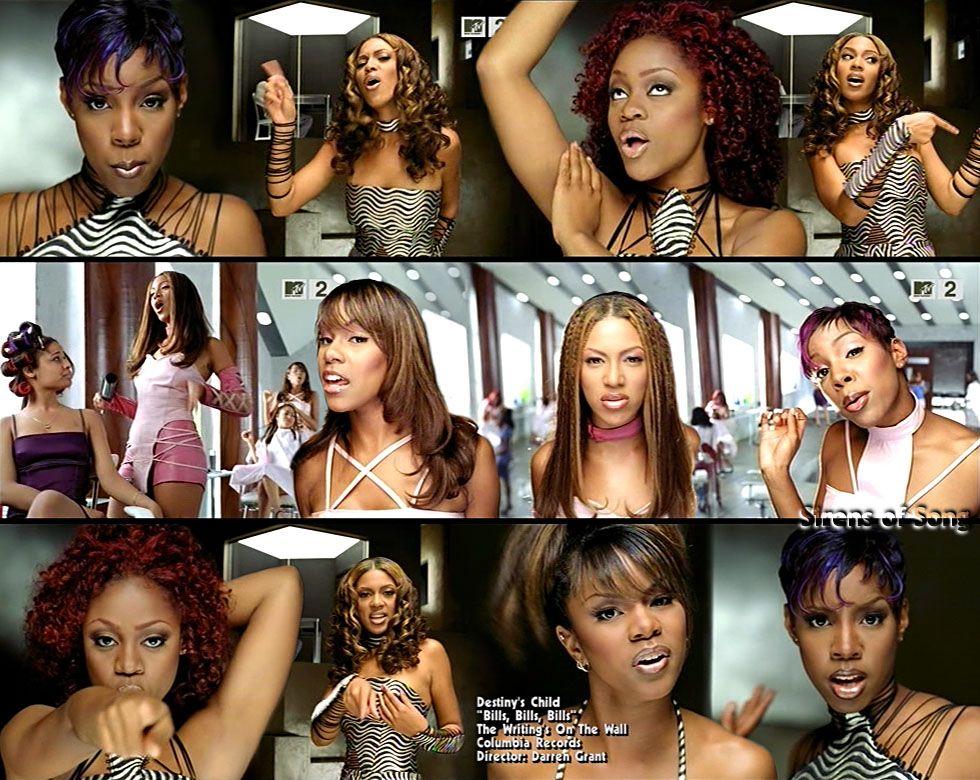Bills, Bills, Bills
The music video for “Bills, Bills, Bills” celebrates black womanhood through the setting in a Black-owned hair salon, a staple for black culture. It is narrated from the female consciousness, so the women are not sexual props or exploited by men. 
Paule Woolfe’s “A Studio Of One’s Own: Music Production, Technology, And Gender” argues women have to isolate themselves proving male dominance often ruins the creativity of women forcing them to build confidence in isolation. Destiny Child’s has created a “studio of their own” despite the systemic patriarchy that has been controlling women’s creativity and the music industry as a whole. Where My Girls At?”: Negotiating Black Womanhood in Music Videos” explains how black women are highly populated and accepted for their sex appeal in hip hop culture and videos. Despite the anti womanness of the 1990s, women like Destiny’s and Lauryn Hill were actively changing the narrative for female producers and performers.
Black women’s intersectional identities coerce them into decades of being exploited and isolated; however, they gain agency through their independence both creatively and financially. This source allows me to explore how intersectional identities can be especially crippling in patriarchy but also progresses my thesis because it shows how women combat marginalization
